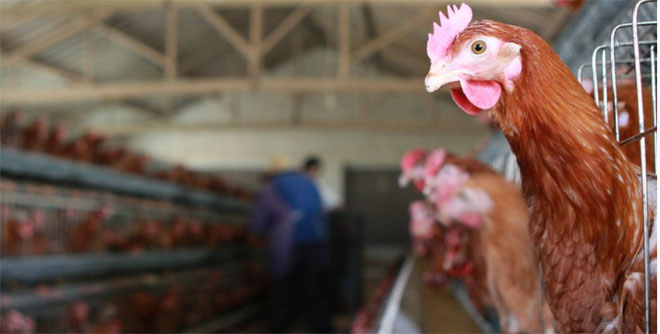
Nairobi, Kenya | AFP |
Kenyan and Rwandan authorities said Wednesday they had banned poultry products from neighbouring Uganda, where a virulent H5 strain of avian flu has broken out.
“The government banned importation of poultry and poultry products from Uganda with immediate effect,” said Kenya’s agriculture cabinet secretary Willy Bett at a press conference.
The move from Nairobi comes two days after Rwanda also blocked poultry imports.
“Rwanda has put in place measures to prevent the disease. We have temporarily halted the import of poultry and poultry products,” Christine Kanyandekwe from the country’s agricultural department said Wednesday.
She said Rwanda imports 50,000 day-old chicks and 100 tonnes of eggs from Uganda per month. Figures for Kenya were not immediately available.
Uganda’s agriculture ministry announced Sunday that it had detected avian flu among migratory birds, saying that it had since spread to a few domestic birds.
In both areas where it was detected the birds tested positive for “the highly pathogenic avian influenza that affects both humans and animals and which causes a high number of deaths in both species”, the ministry said.
Uganda’s acting commissioner in charge of animal health Dr Anna Ademun told AFP the strain was “confirmed to the level of H5.”
Uganda has some 40 million chickens, according to agricultural statistics.
In 2016, 51 countries declared the outbreak of one of the virulent H5 and H7 strains of bird flu, according to the World Organisation for Animal Health (OIE). These include H5N1, H5N2, H5N5, H5N6, H5N9, H7N1, H7N3, H7N7 and H7N8.
Europe is battling the spread of H5N1, culling millions of birds on farms and moving them indoors to avoid contagion from infected wildlife.
The strain can be transmitted to humans, and is held responsible for the deaths of several hundred people since 2003.
Japan and Iran have also had to cull hundreds of thousands of birds due to outbreaks of the virus.
 The Independent Uganda: You get the Truth we Pay the Price
The Independent Uganda: You get the Truth we Pay the Price





